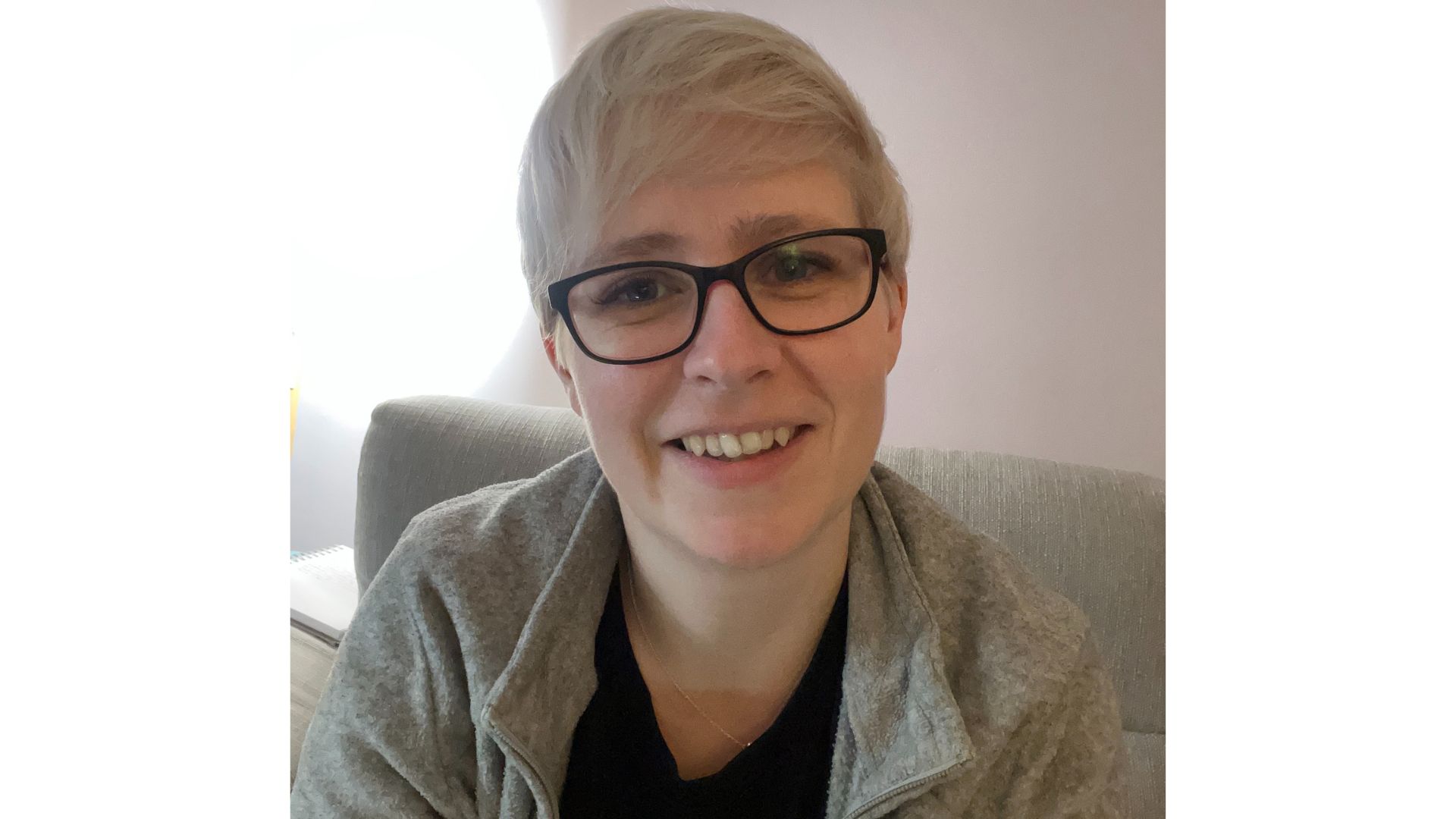“I thought it was just stress” – 3 women share their experiences of going through early perimenopause
As a new study reveals 39% of women say perimenopause began earlier than they anticipated, we spoke to three women about their journey


Sign up to our free daily email for the latest royal and entertainment news, interesting opinion, expert advice on styling and beauty trends, and no-nonsense guides to the health and wellness questions you want answered.
You are now subscribed
Your newsletter sign-up was successful
Want to add more newsletters?

Daily (Mon-Sun)
woman&home Daily
Get all the latest beauty, fashion, home, health and wellbeing advice and trends, plus all the latest celebrity news and more.

Monthly
woman&home Royal Report
Get all the latest news from the Palace, including in-depth analysis, the best in royal fashion, and upcoming events from our royal experts.

Monthly
woman&home Book Club
Foster your love of reading with our all-new online book club, filled with editor picks, author insights and much more.

Monthly
woman&home Cosmic Report
Astrologer Kirsty Gallagher explores key astrological transits and themes, meditations, practices and crystals to help navigate the weeks ahead.
Perimenopause is usually assumed to be something that women start going through at around 45, but many women notice changes in their bodies as early as their 30s.
Indeed, a 2025 study from Menopause Care found that for 39% of women, perimenopause began earlier than they had expected.
When women did eventually suspect that their symptoms might be hormonal, only 56% felt supported and understood during their first GP appointments. Dismissed by medical professionals, women are forced to soldier on through their life-controlling, crippling symptoms until they plead their case long enough to be seen and heard.
We spoke with three women who kept advocating for themselves to doctors until they were finally prescribed HRT for early perimenopause.
Overlooked symptoms

Emily Pomroy-Smith felt her first perimenopause symptoms aged 35
For many women, perimenopause symptoms – from changes to their menstrual cycle lengths, to hot flashes, sleep problems, and vaginal dryness – are often just excused away, by themselves and doctors, as a normal part of getting older.
Near the end of 2019, Jenny Lucas, then 35, a mother of two and full-time music teacher in Berkshire, UK, constantly felt overwhelmingly tired and foggy-brained.
“Sometimes I would struggle to find the right word when I was talking,” she tells us. I was worried it might be early-onset dementia, as it does run in my family.
Sign up to our free daily email for the latest royal and entertainment news, interesting opinion, expert advice on styling and beauty trends, and no-nonsense guides to the health and wellness questions you want answered.
“I went to the doctor and had blood tests, which came back normal, three times over a period of 18 months."
Emily-Pomroy-Smith, 37, founder of a haircare business in Wiltshire, UK, also initially struggled to find explanations for her symptoms. Having always been able to sleep well, Emily suddenly found she couldn’t drift off once she turned 35.
“I would just lie awake at night, not able to shut off my brain,” she tells us.
“There was the knock-on effect of not having sleep – brain fog and irritability. The insomnia got worse, and alongside that, I was struggling to shift weight despite exercising and eating healthily, and I had low libido and lots of hot flashes. My periods had also become shorter, but very painful.
“Doctors did all the blood tests and just said I was a bit iron-deficient.”
Facing a similar experience, Anita Guru, now 44, from Surrey, UK, started to get erratic periods, hot flashes, low mood, brain fog, and anxiety when she was 39 – changes that holistic therapists, friends, and family suggested were “just stress.”
Why we thought it could be perimenopause
In the last 10 years, menopause symptoms have been talked about much more than in previous generations. Women are now armed with information and able to identify changes in their bodies, understanding that the cause could be down to hormone fluctuations.
“I’d heard on TV that perimenopause can start early, and thought that all of my symptoms could be down to that,” Jenny says.

Jenny was 35 when she started feeling very tired and having brain fog
“It was my mom who suggested I might be perimenopausal when she watched me have a hot flash while talking with her,” Emily says. “She told me she had gone through it early too, and wished she had gotten on HRT earlier. She pushed me to see another doctor.
"As far as I know, none of my peers have gone through this, so had it not been for my mom, perimenopause wouldn’t have even been on my radar.”
It was heartbreaking to be dismissed
Having built up the courage to speak to doctors, women often feel let down by the doctors they’ve seen. Menopause Care’s study found that only half of women felt supported and understood during their first appointment about their menopausal symptoms, with one in five saying their symptoms weren’t diagnosed correctly on their first visit.
When Jenny told her doctor she thought she might be experiencing menopausal symptoms, he “dismissed” her concerns.
“He said I was too young – that I was just a busy mom,” she says. “Another doctor told me it was just a natural part of life, and that I just needed to adjust my diet.
“It was heartbreaking to be dismissed, and I didn’t know who else to speak to.”

At the age of 39 Anita started getting lots of perimenopause symptoms, which were dismissed as stress
Gearing up for her second round of IVF, Anita told several GPs, gynaecologists, and a fertility doctor about her unusual period pattern, hot flashes, low mood, brain fog, and anxiety.
“They all told me I was too young to be perimenopausal,” she tells us. “I felt gaslit. It was like I was screaming into an echo chamber and not being heard.
“But all the symptoms were getting worse. It was all having a huge impact on my mental health and on IVF treatments. I would wait for my period to come so I could start IVF, but then my period wouldn’t come as planned.
“I spent hours researching perimenopause, convinced this was what was happening in my body.”
Listened to at last
For a couple of months being initially dismissed by doctors, Jenny doubted herself, thinking perhaps she wasn’t perimenopausal. “But things weren’t getting better,” Jenny says. “If the exhaustion carried on, I knew I might have to quit my job.
“I requested to speak to the women’s health doctor at my health practice, and pushed her to let me try HRT. I told her I couldn’t live the rest of my life this tired. She was reluctant, but said I could try it for three months to see if it worked.”
Only a few months ago, in April, Emily also booked in to see the women’s specialist at her GP practice.
“She listened to me, and said it did sound like it could be perimenopause,” Emily says. “After doing blood tests, she said my hormone levels did indicate that I could be perimenopausal. She offered to prescribe me HRT if that was the route I wanted to go down.
"It was a huge relief for someone to tell me that this wasn’t ‘all in my head’, and that something could actually be done about it.”
Anita finally spoke to a GP who identified that her symptoms could be due to perimenopause.
“I later found out that my early perimenopause could be traced back to endometriosis I’d been diagnosed with in my early 30s,” she says. “I had a lot of surgeries and my egg count dropped as I shed layers of my ovaries through surgeries, leading to premature menopause.”
The impact of HRT
All three women were eventually prescribed HRT, and each experienced some degree of reprieve from their perimenopause symptoms.
“I’ve now been using HRT for two years, and it has reversed my symptoms,” Jenny says. “It’s so wild the difference HRT can make. It’s been life-changing.”
Emily is currently using a combination of estrogen patches and progesterone tablets. “In just two months of using HRT, my insomnia has gotten better and I’ve been able to lose some weight,” she says.
“My periods are more normal, too. I think there are still some tweaks to be made – my temperature regulation still isn’t great. But the women’s health doctor I saw has planned check-ups with me to reassess what we can do differently.”
Anita was prescribed estrogen gels and progesterone tablets a year after her symptoms had started. “The HRT has hugely improved the hot flashes, but I’m still struggling with my brain fog, lack of concentration, and low mood.
"HRT has been helpful, but it isn’t a magic pill,” she says.
“I’ve heard about women who feel hopeless when they don’t feel seen or heard. And I get it. We do all we can to help ourselves and nothing works, and no one listens. If I hadn’t kept pushing, I don’t know what my life would look like now.”

Lauren Crosby Medlicott is a freelance journalist based in Wales.
When she isn't writing, she's either having a cappuccino, chasing after her three kids, walking in the mountains, or buried in a book.
You must confirm your public display name before commenting
Please logout and then login again, you will then be prompted to enter your display name.